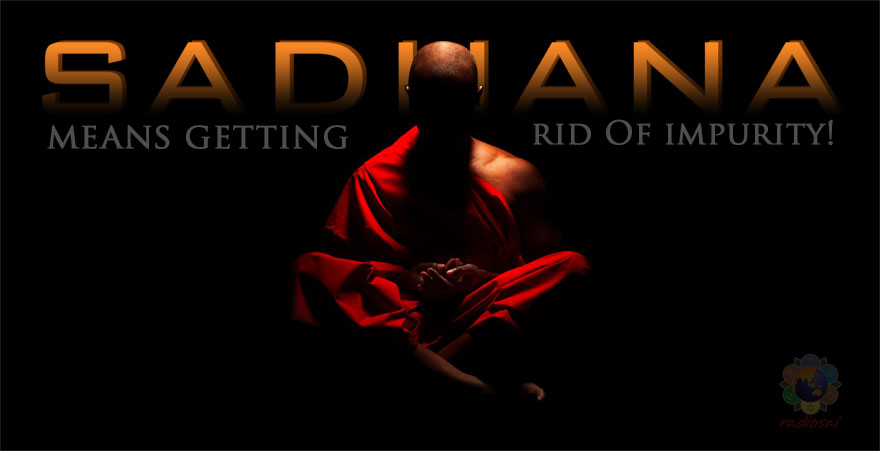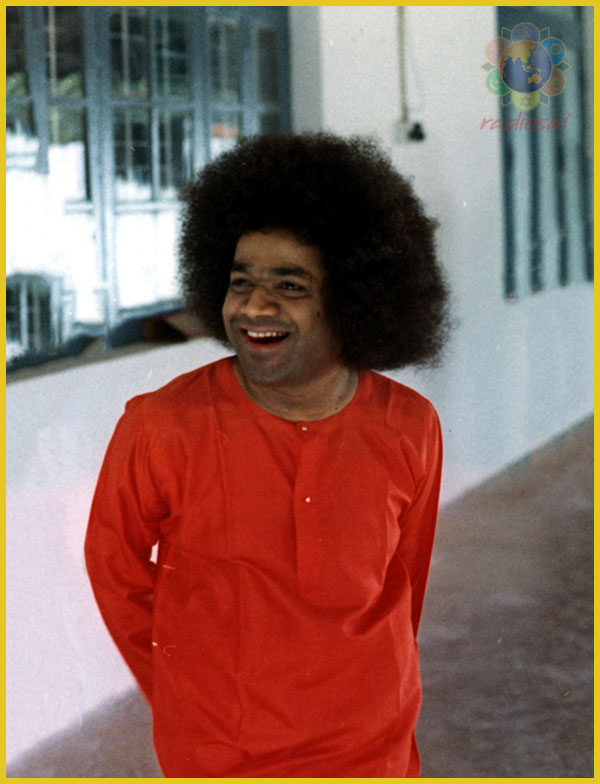|
|
| 'Like' us on Facebook | Follow us: |
Posted on: June 24, 2016
 |
Guru Poornima Special Offering
(Daily Episode)
Part - 16
In 2006, eager to start a service which will help everyone to connect with Bhagawan's teachings on a daily basis, Radio Sai began 'Sai Inspires'. All who subscribed to this service, received an email from us which had a concise message of Baba accompanied with His image. This daily offering was received well, and soon the subscriptions grew. Today nearly 100,000 people from all corners of the world wait for this message to help them tide over their day with peace and ease. The power inherent in these discourse capsules is indeed tremendous. How much we benefit from it and how best we harness this energy depends purely on how seriously we ruminate over these words and how sincerely we put our learning into action. To help us in this noble and elevating exercise, Prof. G. Venkataraman has taken time out to elaborate on these messages. His reflections will not only give us a deeper understanding into what the Lord is communicating to us but also give us tips to translate them into our daily practical life with more ease.
The best way to value the Master is to master His values. As we prepare to celebrate Guru Poornima (July 19), when we pay our respects and obeisance to the Divine Master, let us work to offer Him the tribute that the Lord loves the most from us - to make our lives His message, to make His love and wisdom shine in us. To aid us in this endeavour we have this series where Prof. Venkataraman for the next 26 days from June 9, 2016 shares his insights on select Sai Inspires messages. We hope this will help us to understand His teachings better and bolster our determination to walk on the sacred path.
Sai Inspires Message
SADHANA MEANS GETTING RID OF IMPURITY!
When dirty water gets mixed with milk, the milk has to be boiled to make it pure. Likewise man has to undertake various types of Sadhana to purge his mind of impurities. Exercises such as meditation, chanting, etc. can only provide mental satisfaction. It is only when the Heart is allowed to melt in the heat of Divine love that the pristine effulgence of the Heart would be able to reach out. Just as the Sun's rays can burn a heap of cotton if the rays are concentrated by passing through a lens, the rays of the intellect will destroy one's bad qualities only when they are passed through the lens of Divine love.
• Divine Discourse, October 24, 1992.
REFLECTIONS
Sai Ram. I am sure most of you must have heard the word sadhana, especially since sadhana camps are held all the time. Most of you are also probably under the impression that sadhana means some kind of spiritual routine, exercise, drill, etc. In a sense they indeed are. Yet, in the above Sai quote, Swami’s focus is on purity. What exactly does Swami mean? Let’s explore.
Swami reminds us often that all humans are a composite of three distinct entities, namely the gross body, the subtle mind and the causal Atma. Bearing that in view, we shall now ask three questions in relation to each of these? These would be:
• Where does the entity come from?
• How does it get impure?
• If it gets impure, how does one clean it up?
 |
Let’s start with the body. The body easily gets dirty in many different ways, for example when one goes out to play tennis or cricket or whatever. One also knows how to clean it up – all it needs is a good soap, a shower, and vigorous scrubbing. Next let us consider the Atma. In this case, we have an interesting situation. Since Atma is God and since by definition the God cannot ever be contaminated with impurity, the question of the Atma within getting dirty does not ever arise; that being the case, the issue of cleaning up also becomes irrelevant; in other words, the three questions I raised earlier simply do not apply to the Atma or Conscience. We just leave it alone; that’s all we have to do.
That leaves the mind, and sadhana is all about 1) cleansing a dirty mind and 2) thereafter trying to maintain its cleanliness. Those are the things we must try to understand, in the context of the Sai quote we started with. In His remarks, Swami Himself refers to some of the drills people usually resort to in the name of sadhana such as chanting Vedas or reciting various slokas and what not. Alternately, they engage in all sorts of rituals or even so-called meditation. Can these drills be useful? Yes they can. But are they guaranteed to produce results? No unless they are practiced with the requisite mental discipline.
This is where one ends up with a sort of catch-22 kind of situation. I mean you practice these drills in order to attain mental purity; but you need mental purity in order for these drills to be effective! Stated that way, it would appear that one is sort of stuck, going round and round a loop. Is there no way out? Yes there is, and that is to get God directly involved with our cleansing job. How does one do that? That’s what we shall examine next.
Let us start with the obvious fact that since all of us have come from God, He is at once our Divine Father as well as Divine Mother, that is to say some aspects of His relationship with us would be like that of a father while the rest of it would be like that of a mother. The point I am making is that He always loves us. However, most of the time, that love may not translate into direct personal attention. Swami gives a good example. He says a mother has two children, a girl aged thirteen and young child aged two. The mother loves both but the older girl would get little personal attention; rather, she would be given a lot of household tasks, and at times she has to also care for her baby brother. And when the mother is free, she dotes on the baby, hardly paying attention to her first born. This does NOT mean that she loves one child more than the other. Not at all. At the same time, the little boy manages to attract the mother, and get all the help from his mom. Humans, says Swami, must use the same strategy, and God is quite amenable to that.
 |
What exactly do I mean by that last remark? To appreciate that consider this observation Swami makes towards the end of the quote we are discussing.
Just as the Sun's rays can burn a heap of cotton if the rays are concentrated by passing through a lens, the rays of the intellect will destroy one's bad qualities only when they are passed through the lens of Divine love.
In translation that means:
O humans! Relate to God in such a way, that you begin to directly experience His Love in profusion. And when that happens, all the impurities in your mind would just sublimate and disappear! That’s how you make your sadhana deliver the goods! Understand?!
So now the question becomes: “How does one make God give special attention?” Well, how did the baby boy in my example do that? Did he read any best sellers books on how to win influence? Did he attend any crash course on personality development? None of that. He simply let loose his innocent baby charm. When he smiled sweetly, the mother just could not resist picking him up and fondling him. So, if we want God’s direct and personal attention, we have to do something like that. But it can’t be with smashing, toothpaste ad smiles; what exactly we have to do to become dear to God has been clearly explained in the 12th Chapter of the Gita, concerning which Swami has delivered any number of Discourses Himself. So, some homework is needed!
The bottom line is: The best way to make one’s sadhana succeed is to make God Himself our coach. But God is not so easy to get, unless some down payment is made, and it is the nature of that down payment that is described in the 12th Chapter of the Gita, as also in Swami’s Gita Vahini, for example.
By the way, also ask: “When mother fondles her baby boy, does the older girl feel jealous? If she does we can easily understand why, but if she does not, why would that be? Think about it, and also ask whether there are people who feel very happy when God gives personal attention to others rather than themselves! Nice exercise I would say!
Thank you and I hope you found this useful. Jai Sai Ram.
Radio Sai Team
| comments powered by Disqus |






